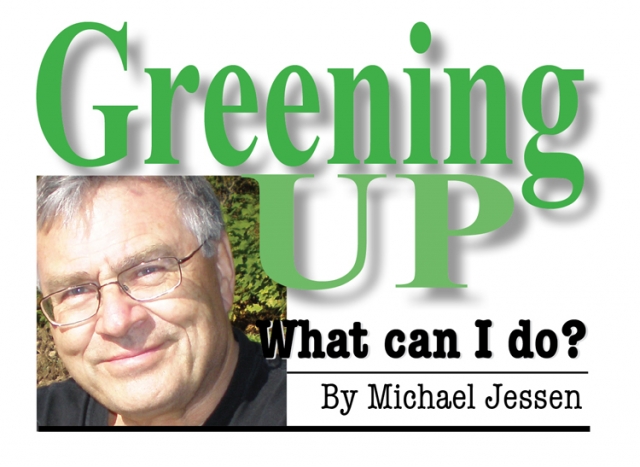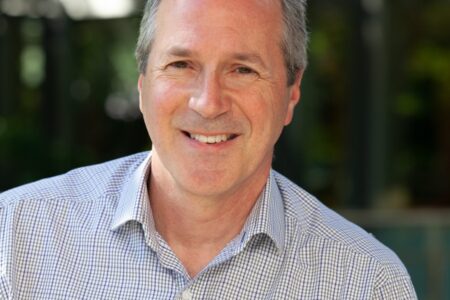Exporting ourselves to death
“The unbroken violation of nature in Canada, the economy founded on the trapping and mutilating of animals, the destroying of trees, the drying up of rivers and the polluting of lakes, began inspiring guilt and uneasiness long before the contemporary ecology movement.”
– Northrop Frye, National Consciousness in Canadian Culture
Infinite growth on a finite planet is impossible. Yet growing forever is the predominant economic policy goal of both the British Columbia and Canadian governments.
The assumption that exploiting nature is the only way to human advancement is alive and well in initiatives promoted by BC Premier Christy Clark and Canadian Prime Minister Stephen Harper.
Exhausting our natural resources and destroying life-supporting ecosystems in pursuit of economic growth is embedded in the history of Canada. Once Canadians were dubbed as “hewers of wood and drawers of water”; now we can be more accurately described as “conveyors of crude and moilers of metals”.
We Canadians have long lived off our resources or staple exports, but that’s no reason not to try to diversify the economy. For our federal and Alberta governments, oil from the tar sands is the flavour of the day, a staple with a vast propensity to do environmental damage here and globally. An astute graduate student at Carleton University says we’ve only compounded the staple trap by making it a carbon trap.
Keystone XL a “no-brainer”
Harper says the construction of the $7 billion Keystone XL pipeline to ship Alberta’s tar sands bitumen to Texas is a “no-brainer” much like his government’s insistence to continue allowing the export of chrysotile asbestos despite a ban by the European Union and the opposition of the Canadian Association of Physicians for the Environment and other health professionals, unions and environmental groups.
NASA scientist James Hansen refers to the Keystone XL project as the “fuse to the biggest carbon bomb on the planet.” Using gasoline refined from tar sands oil is “equivalent to burning coal in your automobile,” he adds. The US Environmental Protection Agency says the pipeline could yield an extra 1.15 billion tons of greenhouse gases during a projected 50-year lifetime.
Harper has a “use it or lose it” attitude to Canadian natural resources. Speaking specifically about resources in the Arctic, he said: “Managed properly, Canada’s share of this incredible endowment will fuel the prosperity of our country for generations.”
BC government blesses fracking
In BC, the new staple is natural gas obtained by hydraulic fracking, a process that forces millions of gallons of water mixed with sand and chemicals deep underground to open gas-bearing fissures in shale.
France’s parliament has passed a ban on fracking. New Jersey and New York have placed temporary bans on fracking pending more research into its safety. Albany city council has just joined Buffalo, Cooperstown and more than 50 other cities, towns and counties in New York that have approved a ban on gas drilling inside city limits.
But in British Columbia hydraulic fracking has the full blessing of the provincial government. Part of Clark’s “BC Jobs Plan” is support for a liquefied natural gas plant in Kitimat to ship LNG to Asia whose countries Clark believes hold the key to BC’s economic future. The terminal will be served by the 463-kilometre, $1 billion Pacific Trails Pipeline that will run from Summit Lake north of Prince George to Kitimat.
“It is time to show everyone how safely this business is done,” Clark said in a recent interview. “The province feels very strongly that fracking is safely regulated in British Columbia.”
Royalties vs reality
The 20-year export permit granted by the National Energy Board is expected to bring provincial coffers $90 million in royalties in the first year alone when exports begin in 2015. Could this be an example of money blinding a politician to reality?
Because shale gas wells leak substantial amounts of the potent greenhouse gas methane – shale gas is typically comprised of over 90 percent methane – Robert Howarth from Cornell University in Ithaca, New York concludes shale gas has a greenhouse gas footprint 20 percent greater than coal and maybe twice as great over a 20-year timeframe.
Clark is also pushing the $5.5 billion Enbridge Northern Gateway pipeline to ship bitumen from Edmonton to Kitimat and supports major mining developments in the Stikine-Iskut river system, including Shell Canada’s proposed coal-bed methane project in the Sacred Headwaters, and the Taseko Mines “Prosperity” gold-copper mine near Williams Lake.
While the U.S. and South Korea have signed a new partnership agreement on clean-energy research and development to collaborate on areas such as renewable energy, energy efficiency and smart-grid technology, Canada, Alberta and British Columbia just want to perpetuate Korea’s reliance on fossil fuels.
Exporting death
My province and my country are nothing but drug pushers with dirty needles catering to American and Asian oil and gas addiction. They are both exporting death and exporting Canada to death.
Tars sands oil extraction and natural gas fracking have at least four strikes against them as economic endeavours – they produce prodigious increases in GHGs, they both use phenomenal amounts of water, they add substantially to air and water pollution, and they are diminishing Canada’s vital boreal forests – the largest carbon storehouse on Earth and often called “the lungs of the world.”
Because the companies withdrawing these resources are externalizing the true costs of the environmental damage caused by resource removal, their actions are perceived as “economic growth.” It is a classic example of short-term gain trumping long-term pain.
When is it time to stop?
Economist Herman Daly says we need to consider this “growth” as part of “the Greater Economy of the natural ecosystem.” There will come a time, Daly says, when the marginal costs exceed marginal benefits and further growth will be uneconomic. This should trigger the “when to stop rule” of a given activity.
I postulate that the “time to stop rule” should be invoked now for all economic activity associated with tar sands oil extraction and natural gas fracking. Companies and governments are now making decisions that will commit society to continued reliance on fuel from dead plants and animals for at least one or two human generations. The billions of dollars poured into pipelines, shipping terminals, tankers and related infrastructure should instead be invested in increasing energy efficiency and deriving all our energy needs from renewable sources.
Sustainability means “able to continue” and we are currently using the equivalent of 1.5 planets to meet our needs and activities according to the 2010 Living Planet Report. “Canadians are among the worst offenders contributing to a continued decline in global biodiversity and an increase in the global ecological footprint,” says the report.
Business as usual is no longer an option.
Clearly tar sands oil extraction and hydraulic fracking are unsustainable activities, no matter what their short-term perceived economic benefits. Exporting tar sands bitumen and fracked natural gas increases GHGs both at home and abroad, surely an immoral act that threatens the well-being of our children, grandchildren, and the planet.
Investment community recognizes risk
A number of recent reports from the investment community illustrate their growing concern with the creeping risks of ecosystem loss and degradation.
TEEB – The Economics of Ecosystems and Biodiversity – was launched by Germany and the European Commission in 2007. It states bluntly: “We are running down our natural capital stock without understanding the value of what we are losing.” It goes on to state that “by failing to account for the value of ecosystems and biodiversity, we will make the wrong choices in responding to these and other challenges.”
One report from the United Nations Environment Programme Finance Initiative and the Principles for Responsible Investment (an initiative with over 800 signatories from 45 countries with roughly US$22 trillion of assets under management) puts a price tag on unsustainable natural resource use and pollution by business:
Annual environmental costs from global human activity amounted to US$6.6 trillion in 2008, equivalent to 11 percent of GDP. Assuming a ‘business as usual’ scenario, global environmental costs are projected to reach US$28.6 trillion, equivalent to 18 percent of GDP in 2050.
From Universal Ownership: Why environmental externalities matter to institutional investors:
To put this figure into context, annual global environmental externalities are 20 percent larger than the US$5.4 trillion decline in the value of pension funds in developed countries caused by the global financial crisis in 2007/08,” say the report’s authors.
3,000 companies cause 60 per cent of environmental costs
The report goes on to state that the top 3,000 public companies cause over US$2.15 trillion or one-third of global environmental costs and as such are undermining the environment’s ability to support the economy. It says five sectors – electricity, oil and gas producers, industrial metals and mining, and construction and materials – account for around 60 percent of the environmental costs from the largest 3,000 listed companies.
Large diversified institutional investors such as pension funds, mutual funds and insurance companies are “Universal Owners” according to the report and as such “are exposed to rising environmental costs that contribute to economic and market risks. These costs could affect asset values and fund returns. Reducing environmental externalities would reduce net costs in the economy and ultimately benefit Universal Owners.”
Perhaps it is time to talk with your investment counsellor to discover how you can collaborate to encourage policy makers and companies to reduce environmental impacts and protect your investments.
OWS and 3GF call for reforms
In the past few weeks, two events – Occupy Wall Street (OWS) and the Global Green Growth Forum (3GF) – have attempted to alert the powers that be that people want the global economic system reformed in a much more sustainable way.
OWS is demanding economic justice – an end to greed and corruption by the one per cent, be they banks or multi-national corporations. Actions have taken place in more than 1,500 cities worldwide since OWS began September 17 in New York.
3GF took place in October in Copenhagen, Denmark. It brought together over 200 global leaders from 27 countries across five continents representing governments, businesses, finance and civil society to push green growth and the shift to a green economy. No Canadian representative attended.
At 3GF, the UN Environment Programme Finance Initiative in collaboration with Global Footprint Network and leading financial institutions decided to begin a project to explore the role of natural resource accounting in strengthening risk models for government bonds. The project seeks to incorporate how much natural wealth countries have – and how much they spend – into assessments of long-term credit risk.
There’s power in a portfolio
The writing is on the wall – when investors begin to recognize their power to do right, they will Occupy Wall Street through their portfolios.
The Investor Group on Climate Change (IGCC), a body of 285 investors across the globe with about $20 trillion of assets, says in its just-released report there is an urgent need for policies which stimulate private sector investment into climate change solutions and create jobs.
The IGCC’s Australian representative, Frank Pegan, said those nations that had “clear and credible climate policies” would attract investment. “As and when governments around the world show leadership and reduce policy risk around climate change for investors, the investment flows will follow,” he said.
“Those countries that succeed in attracting private capital into low-carbon growth areas such as cleaner and renewable energy, energy efficiency and decarbonisation will enjoy multiple benefits, including new jobs, new businesses, new research and technology innovation, more resilient and secure energy systems and, ultimately, more sustainable economies,” says the IGCC report.
Clark wants no opposition
Contrast that statement with what Christy Clark told attendees at the BC Oil and Gas Conference in Fort Nelson in September:
“We need to get people thinking about how we are going to get behind economic activity and projects that are going to create jobs across the province. And I’m tired of hearing people say, ‘No, I don’t want that development. No, I don’t want those trees cut down. No, I don’t want that mine. No, I don’t want that well drilled.’
“We need to move to yes. We need to move to yes as a province. As citizens. And we need governments to move to yes as well. And get out of the way of economic activity if we want to succeed in British Columbia.”
Craig Rosebraugh is a film director who thinks so little of the fossil fuel industry that he has titled his new film “Greedy Lying Bastards.” To be released in 2012, the film claims the industry “puts profits before people, wages a campaign of lies to thwart measures to combat climate change, uses its clout to minimize infringing regulations and sustain unnecessary federal subsidies that are crushing the economy.”
By their words and actions, BC’s Premier and Canada’s Prime Minister are guiding us further away from a sustainable, green, socially just economy. They are not listening to the demands of the 99 per cent.
The fossil fuel industry and the politicians that are beholden to it will not change until they have to. It is time for us to say loudly, firmly and all together – this is a have to moment.
Michael Jessen is a Nelson eco-writer and owns the consultancy Zero Waste Solutions. He is also the Energy Critic for the Green Party of British Columbia and can be reached by e-mail at zerowaste@shaw.ca.
Resources
- The new underground economy of subsoil resources: no longer hewers of wood and drawers of water by Philip Cross is available at http://www.statcan.gc.ca/ads-annonces/11-010-x/pdf/6000716-eng.pdf
- Greenpeace’s Tar Sands and the Boreal Forest brochure is at http://www.greenpeace.org/raw/content/norway/press/reports/tar-sands-and-boreal-forest-fa.pdf
- Sierra Club of Canada’s Tar Sands & the Boreal Forest is at http://www.sierraclub.ca/en/tar-sands/publications/tar-sands-boreal-forest
- The Canadian Society for Unconventional Resources supports fracking with videos, publications and presentations at http://www.csur.com/
- Herman Daly answers the question: “What is the distinction between economic and uneconomic growth?” at http://www.youtube.com/watch?v=fnqFrs4X5iQ
- The WWF Living Planet Report 2010 can be downloaded at http://www.footprintnetwork.org/press/LPR2010.pdf and a page about Canada can be found at http://wwf.ca/newsroom/reports/living_planet_report_2010.cfm
- Universal Ownership: Why environmental externalities matter to institutional investors can be found at http://www.unpri.org/files/6728_ES_report_environmental_externalities.pdf
- Investment-Grade Climate Change Policy: Financing the Transition to the Low-Carbon Economy is available at http://www.iigcc.org/__data/assets/pdf_file/0018/15282/2011-Investment-Grade-Climate-Change-Policy.pdf
- The CEO Briefing from the United Nations Environment Programme Finance Initiative entitled Demystifying Materiality: Hardwiring biodiversity and ecosystem services into finance is available at http://www.unepfi.org/fileadmin/documents/CEO_DemystifyingMateriality.pdf
- Occupy Wall Street has a website at http://occupywallst.org/
- The Global Green Growth Forum is at http://www.globalgreengrowthforum.com/
- For more about Craig Rosebraugh’s film, visit http://www.greedylyingbastards.com/


























